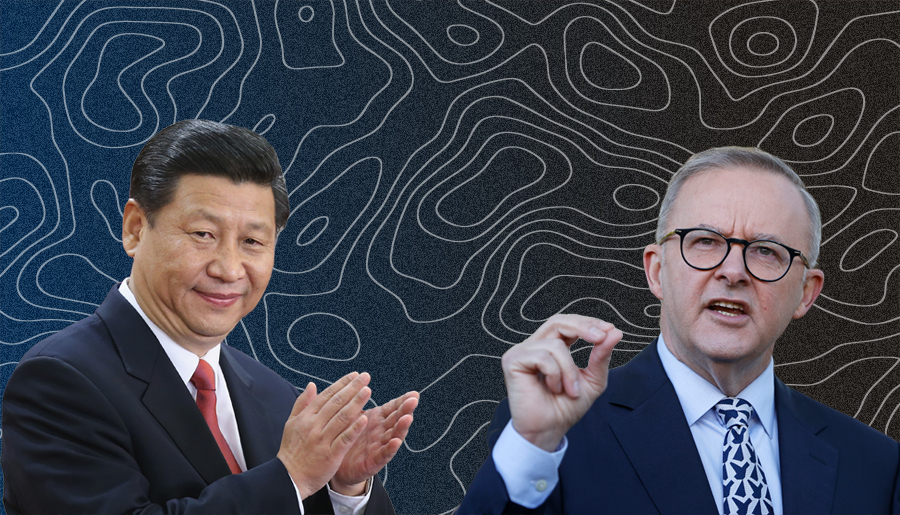Trigger warning: This article deals with the topic of physical and verbal abuse. It may be distressing for some readers.
Hello folks, hope you’re all safe and well. Today we have another slog of serious headlines that need to be discussed. So let’s get straight into this Tuesday’s biggest stories.
The Anthony Albanese and Xi Jinping Meet at G20
For the first time since 2016, the Prime Minister of Australia will be meeting the President of China, Xi Jinping. That’s right, Anthony Albanese is stepping once again onto the international pitch at the G20 summit in Bali.
This is a big deal because the relationship between China and Australia has deteriorated in recent years. China has been aloof when it comes to important phone calls or arranging in-person meetings. Additionally, China has also hit Australia with $20 billion worth of trade sanctions.
“Having the meeting is a successful outcome,” said Albanese.
“For six years, we have not had any dialogue, and it is not in Australia’s interest to not have dialogue with our major trading partner.”
It’s expected that these two nations will discuss the aforementioned trade sanctions on Australia.
As the University of Sydney’s Director of the China Studies Centre, Professor David Goodman, said, “They want good trade relations with us. Our exports to them at the moment, such as coal, are costing them more than they would like, and they’re not happy about that. If they lift the sanctions, then trade is direct.”
It’s also hoped that this meeting will discuss the fate of the journalist Cheng Lei and the writer Yang Hengjun. Both of these Aussies are currently being detained in China in a manner that’s concerned human rights groups.
“I’m sure that PM Albanese and President Xi have a range of things to talk about, and I certainly hope that Lei’s case is one of those topics,” said Lei’s partner, Nick Coyle.
“As I’ve said on a number of occasions previously, all I hope for, all her family hopes for, is a compassionate and speedy resolution to the situation that we’ve got at the moment.”
Iran’s First Official Death Sentence Has Been Decreed
Earlier this month, 272 of Iran’s 290 lawmakers voted to make “serious crimes against the state” punishable by death as the country grapples with waves of protest. As of November 15, a Revolutionary Court in Tehran, Iran has used this legislation to sentence a man to death.
During one recent protest against the government, this individual allegedly set fire to a government building. The court said that this individual’s alleged action meant that they were guilty of “enmity against God.”
Last week, the United Nations (UN) called on Iran to abolish the heinous act of the death penalty. They’re concerned that more people will be executed, as a tonne of folks have been protesting against the Iranian government since September.
A panel of UN experts said: “With the continuous repression of protests, many more indictments on charges carrying the death penalty and death sentences might soon be issued, and we fear that women and girls, who have been at the forefront of protests, and especially women human rights defenders, who have been arrested and jailed for demanding the end of systemic and systematic discriminatory laws, policies and practices might be particularly targeted.”
“We urge Iranian authorities to stop using the death penalty as a tool to squash protests and reiterate our call to immediately release all protesters who have been arbitrarily deprived of their liberty for the sole reason of exercising their legitimate rights to freedom of opinion and expression, association and peaceful assembly and for their actions to promote and protect human rights and fundamental freedoms through peaceful means.”
The ongoing series of Iranian protests were incited by the death of the 22-year-old, Mahsa Amini. This young woman was arrested by the country’s morality police for allegedly wearing her headscarf too loosely and later died under their jurisdiction. The morality police are known for enforcing Iran’s mandatory hijab law through humiliating forms of physical and verbal abuse.
Related: Gen Z Lead the Fight in Iran’s Protests
Related: Iran’s Protests — Why Other Countries Have Rallied in Support
Kherson Has Been Liberated From Russian Control
In another boon for Ukraine, the country has recaptured the city of Kherson. This location is of strategic importance because it’s a gateway to Russia’s illegally annexed territory of Crimea. Said victory will also allow Ukraine to move its long-range artillery closer to Russia’s Black Sea Fleet.
During a tour of Kherson, the Ukrainian President, Volodymyr Zelenskyy, said, “This is the beginning of the end of the war. We are step by step coming to all the temporarily occupied territories.”
The Latch encourages anyone who is struggling and needs support to call 1800RESPECT on 1800 737 732 or Lifeline on 13 11 14. Both of these services provide trained counsellors you can talk with 24/7. You can also talk to someone from 1800RESPECT via online chat. If you are in immediate danger, call 000.
Read more stories from The Latch and subscribe to our email newsletter.







